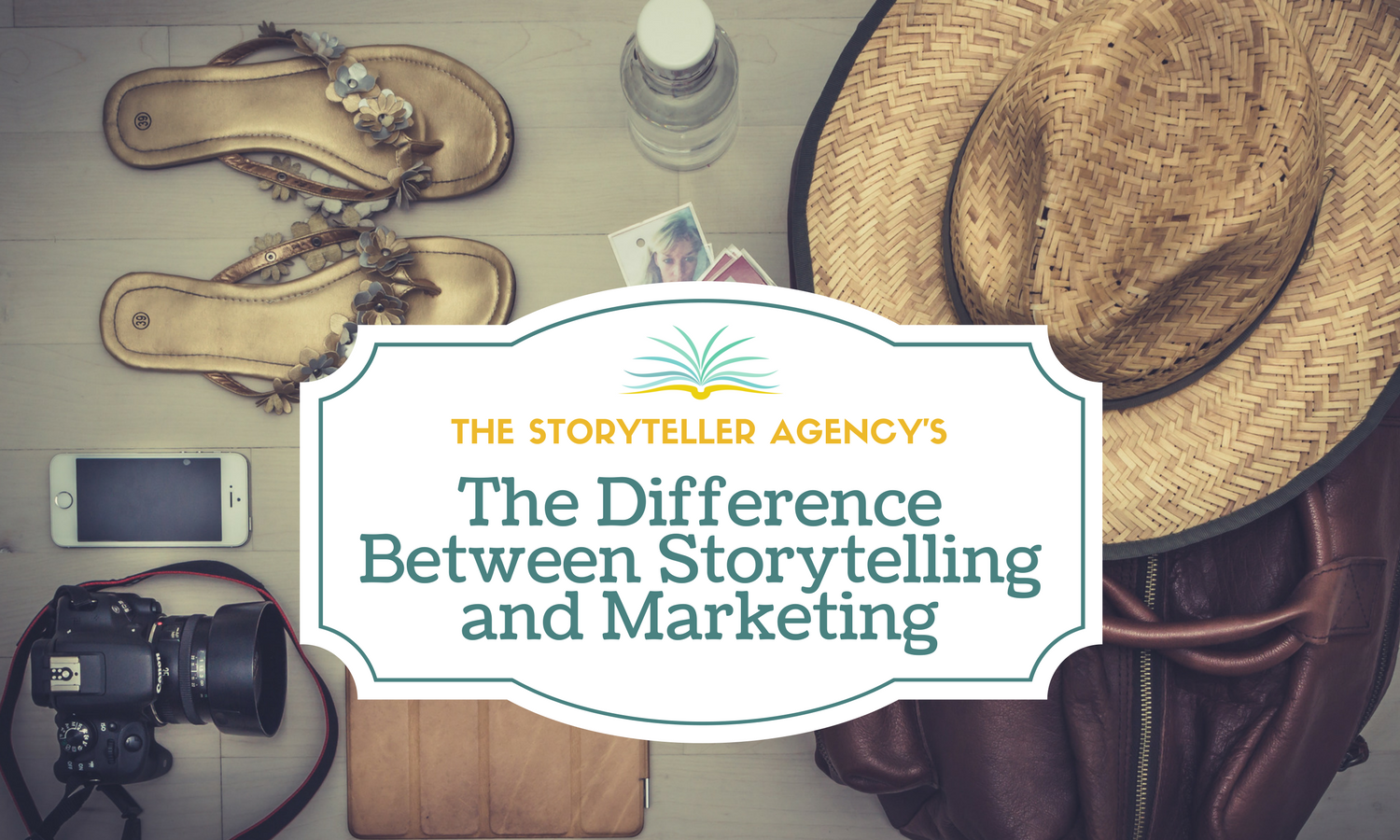The Difference Between Storytelling and Marketing
In the world of content marketing, words like ‘storytelling’ and ‘marketing’ are thrown around a lot; they’re sometimes used interchangeably or in connection with each other. For example, “Your content marketing strategy needs more storytelling!” Despite the face that they are seemingly intertwined, there is a fine distinction between storytelling and marketing that all successful brands and content producers need to understand.
What is Marketing?
The word ‘marketing’ is a gerund that means “the action or business of promoting and selling products or services”. Marketing is an activity that aims to get a product to a consumer. Raising awareness, conducting research, package, etc. fall under the marketing umbrella.
Marketing largely pertains to sales, to a bottom line. In marketing, expedience, ROI, analytics, capital gains, and so forth take center stage. In marketing, audiences are sold to. Brands want to understand audiences, so they can give them what they think they want. Brands reach out to audiences in marketing models.
What is Storytelling (in the Context of Content Marketing)?
Storytelling is a form of interactive expression that engages an audience’s imagination. More simply, it’s the writing and telling of stories. In the context of content marketing, storytelling doesn’t change much. The ultimate goal is to engage an audience’s interest and imagination. Storytellers carefully consider who their audience is and what stories they are interested in.
For brands, becoming established and seeing conversations through storytelling can be a slow but meaningful climb (one most brands don’t have the patience or time for). Stories offer honesty, humility, transparency, vulnerability, and integrity…things ads (the product of marketing efforts) simply cannot and do not.
Why Storytelling is the Future of Content Marketing
It is for this reason that storytelling is the future of content marketing. Audiences are different than they were in the ‘90s when a glossy ad or a paid celebrity endorsement immediately translated into sales. Today’s audiences have been betrayed on some levels and are more skeptical when you hide your greater narrative. They want to feel like you and they could be friends. They’re aware that they’re a walking advertisement for your brand when they buy your product or buy into your ideology. They want your beliefs to be consistent with theirs.
This means, too, that you won’t be able to win every person to be a member of your audience, and that’s okay. Through stories, you will establish an honest and meaningful relationship—a dialogue, with the audiences whose personal beliefs are consistent with yours. These become the people who follow you on social media and who support you. They wear you and tell their friends about you because they feel like they know you; they know your story, and you get to know theirs.
This is where brand loyalty comes in; this is something that marketing alone cannot achieve. A well-cast marketing net will always catch a few fish, but once those fish have been fed, they’re not inclined to stick around and swim around that particular net; they’re going to be adrift.
With storytelling, it might take a while for the fish to find your net and to decide they like what you’re feeding them, but once they do, they’ll be hooked and before you know it, you’ll have a school of fish who love you and who you care about in return.
We have no problem saying that we’re a content marketing agency that hates marketing. Since our inception, The Storyteller Agency has believed in the power of stories. Contact us, and let us help you find your storytelling voice, so you can stop marketing and can start building relationships.








